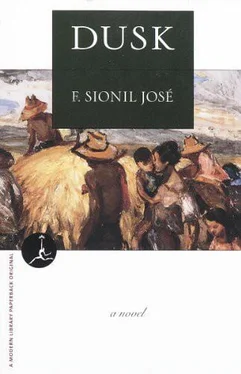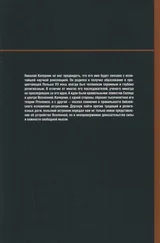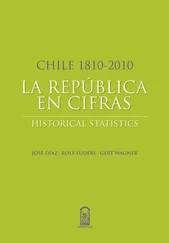I have had all sorts of reactions from readers: one, a scholar, asked me where I got the letter from the priest in the beginning of the novel; he said it read like a historical document. I had to tell him that I wrote it myself, patterned after letters written in the 1880s.
In re-creating Mabini, and endowing the peasant Eustaquio Samson with the habiliments of a hero, what I had intended to show was that nameless thousands of Filipinos then, and now, are capable of epic heroism. All too often, our history is adorned with heroes of high station; there is nothing written about the common people, the foot soldiers who die in the hundreds so that their generals may live.
In writing this novel, I have also tried to look at our history not with the mind-set of historians and scholars who focus on major events and participants. I have focused instead on the “little people,” to give them a nobler image of themselves.
I will perhaps be accused of being a revisionist, of creating new myths by edifying what is common. I understand only too well how myths become enshrined in a people’s psyche, how Olympian heroes become role models.
But in presenting my hero in Mabini and the peasant Eustaquio Samson, I am presenting an ancient truth that many historians have overlooked.
This novel contains expressions and words — some Spanish, some specific to the Philippines — that may be unfamiliar to the reader. A glossary has been included at the end of the book.
BANTAY, ILOKOS SUR
MAY 3, 1880
My Very Beloved in Christ ,
Reverend Father Superior:
Once again, I will acquaint Your Reverence with what has transpired in this distant post where I served for more than forty years, and once again I will summarize my activities during my last year there and beg your indulgence for what I will relate, knowing full well that you have grown tired of listening to me, particularly my insistence that we need more young people in the missions and, therefore, more of the Indios in the seminaries .
As evidenced by these figures from the mission, you will note moreover that the baptisms and marriages have increased while the deaths — barring another epidemic of cholera or smallpox — have decreased .
From these records, Your Reverence will also see, perhaps with some satisfaction, that there has been an increase in the population, not just in Cabugaw but in other towns, sometimes as much as double, during the last ten years. This makes it really necessary for us to build more churches — an activity for which we have always been known, attesting to our capabilities as builders, and for which I am justly proud .
The entire region is showing commercial importance. While it is true that indigo has been our best crop, now we are also harvesting more cotton. The woven cotton sent to other regions of Filipinas has increased. The raising of draft animals continues and our horses are sold all the way to Manila, where they often win at the races. I hear that even the Archbishop keeps some of these beautiful animals. As a matter of fact, when I was transferred here from Cabugaw because, as Your Reverence said, of old age and infirmity, I had hoped to be sent to Manila instead so that I could see how these horses run in the races. Having cared for them, I know their breed has improved. As for their endurance, I have ridden them across the Cordilleras several times. They have been reliable, and sturdy as well .
As for tobacco, it is true that the crop has increased the revenues and pleased the principalia, but the monopoly has created for us many problems. It has transformed honest men into thieves. We have had this monopoly for decades and I am glad that it will soon end .
Early next year, I will celebrate my fiftieth year in the priesthood, most of these years in Filipinas. Half a century! That I have served this long, still read without glasses, and write with an even hand as you can see, proves that I am still capable and should not be shut up in retirement. I should be ministering to the people or actively teaching in the seminary across the river .
But the wishes of Your Reverence must be served .
I must now reiterate my thinking about the conditions, not only in our province, as I know them and as gleaned from travelers .
The people have not forgotten the execution of the three mestizo priests in Cavile eight years ago. They were from distinguished families noted for their urbanity, education, and of course, loyalty to Mother Spain. It is not for me to recall the ecclesiastical arguments concerning this tragic event; people of greater experience and wisdom have already commented on it. I am merely looking back and reexamining the arguments or the circumstances from which we can learn so that we may continue to build the Church as strongly as we have done during the last three centuries .
I say this knowing that in other parts of the world, particularly in America Sur, our influence is no longer what it used to be. Even here in Nueva Segovia this demonic English organization, this Masonry, has already reached out with its evil tentacles under alluring guises and seduced some ilustrados.
But before I proceed, may I describe what I consider to be the Ilokano character. I will make generalizations and, of course, there are exceptions, for in any community there will be those who do not conform .
The half century I have lived here has convinced me that the Ilokano is trustworthy; he knows gratitude and regards it as a paramount virtue. If we were to look for friends, they should be Ilokanos because I cannot think of a more loyal people than they. They are also hardworking, persevering, and frugal Their industry is such that they work from early dawn to late at night, particularly if there is moonlight, unlike the Tagalog and the Bisaya. And they have enduring patience. The women sit at the loom all day long. They harvest their rice stalk by stalk, and not with the sickle. They are not only patient, for after the harvest there is not a single grain in the field that has not been gleaned .
They do not waste anything — everything is useful. The trees around their homes, the plants in their gardens — all bear fruit or can be eaten. But beware; the water buffalo is a patient, friendly, and docile animal, but when it is angered, it is also the most vicious of creatures. Run away from it for your life is in danger — this we must always remember. Our tragic experience with the rebel Diego Silang has shown that such madness can spread like the plague .
The Ilokanos are true Catholics and nowhere else have they built churches as industriously and as devotedly as they have in this province. They are truly devout and they observe all the holy days of obligation .
I say all this, Your Reverence, because I feel deeply about what is happening in this part of the country, the growing discontent that is not yet expressed but will soon be. We could do so much as men of God to show to our flock that we not only mean well, but that it is only under the protection of Mother Spain that this land can be with God and progress .
Your Reverence, we have often prided ourselves on our sense of history. Indeed, history should be kind to us, for we have not been remiss in our tasks. But our service was not always tempered with wisdom. We know that we are not going to be here forever, that the institutions we are building can only last for as long as they are cared for by Indios themselves. For them we have already given our time, our sweat, and even our lives. And I worry that they will not care for these nor will they bother to strengthen what we leave them if they don’t see these — our ministrations and the Church — as theirs. It cannot be otherwise; these institutions are in their land although we transferred them from a distant peninsula .
Читать дальше












